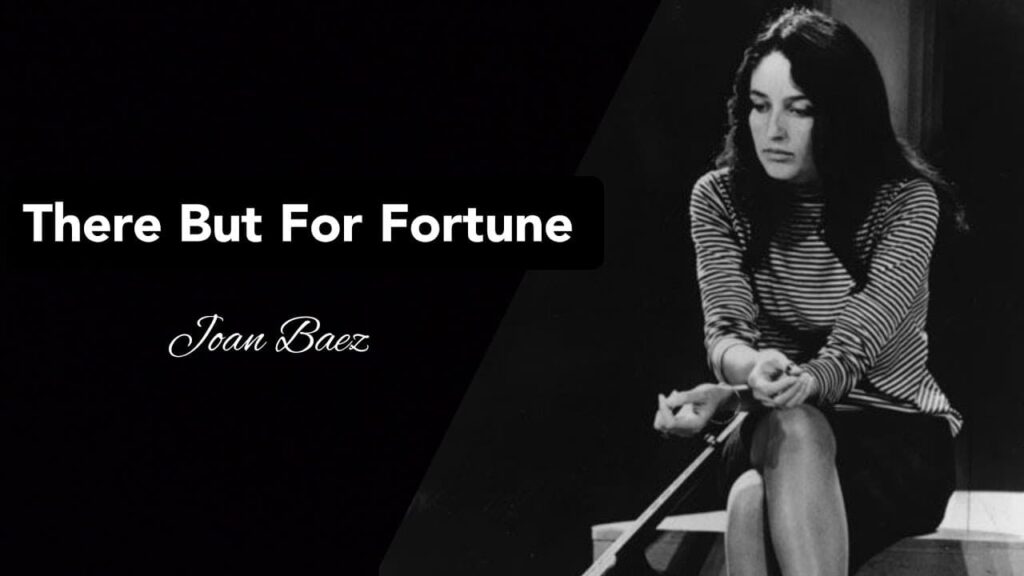
A Quiet Plea for Compassion in a World Too Quick to Judge
When Joan Baez released her interpretation of “There But For Fortune” as a single in 1965 later included on her album Joan Baez/5 the song became one of the defining moments of her early recording career. It reached the Billboard Hot 100, a rare accomplishment for a socially conscious folk ballad in an era dominated by pop gloss and electric bravado. But its chart position, while noteworthy, is secondary to the quiet force with which it entered the American conscience. Written by Baez’s then-partner, Phil Ochs, the song’s resonance grew not from commercial polish but from an unvarnished truth that needed no embellishment: empathy has always been the most radical instrument of change.
“There But For Fortune” stands as one of the most piercing meditations on human vulnerability in the modern folk canon. Baez’s crystalline voice, unwavering yet full of tremor at the edges, does not simply perform the lyric it inhabits it. The song opens its arms to people society readily casts aside: the imprisoned, the impoverished, the desperate, the lost. Through Baez, each verse becomes less a portrait of anonymous suffering and more a mirror held to the listener. The refrain “there but for fortune go you or I” is not an admonition but an invitation to look inward. It asks us to consider how narrow the margin is between stability and collapse, between respectability and ruin, between the life we lead and the one we fear.
Phil Ochs crafted the song with his trademark precision, blending acute social observation with a poet’s restraint. But it is Baez who elevates the composition into something akin to secular prayer. Her phrasing moves with a kind of moral clarity: no melodrama, no self-righteousness, just the steady illumination of truth. The acoustic arrangement is equally spare. A gently strummed guitar becomes the heartbeat of the piece unhurried, unforced, and deliberately uncluttered. It is the folk tradition at its purest: a voice, a story, and just enough accompaniment to let both breathe.
Listening to “There But For Fortune” today, one feels its relevance sharpen rather than fade. The song’s message, rooted in the 1960s struggle for social justice, extends seamlessly into the present moment. The marginalized figures of the verses are not relics of another era; they are still with us, still unseen, still carrying burdens made heavier by indifference. Baez’s performance remains a reminder that compassion is not passive it is a discipline, a way of looking at others that reshapes how we understand ourselves.
In the end, what makes Joan Baez’s rendition endure is its moral imagination. The song does not plead for grand gestures. It does not demand revolution or outrage. Instead, it asks for the smallest, hardest thing: the willingness to recognize our shared fragility. And in that recognition lies the possibility of grace.